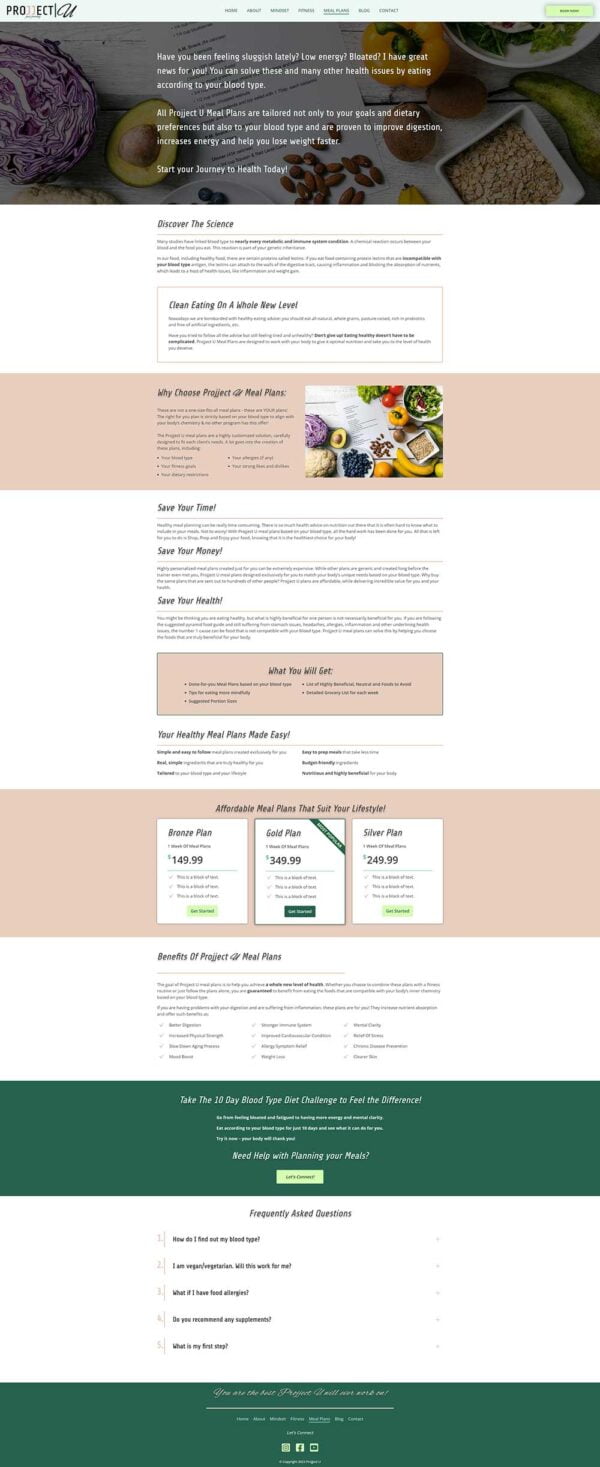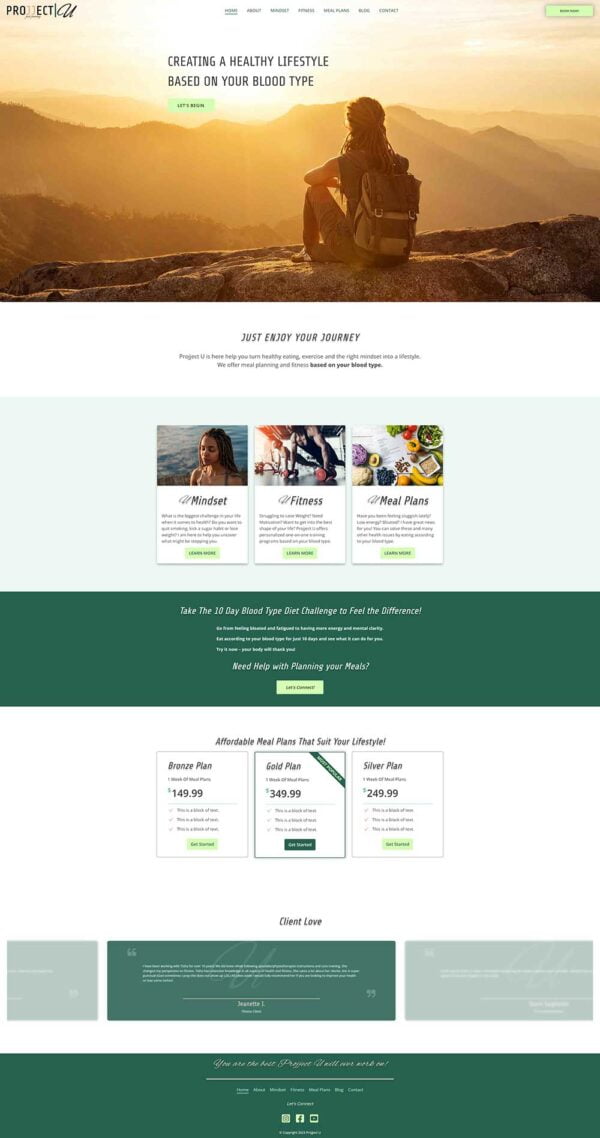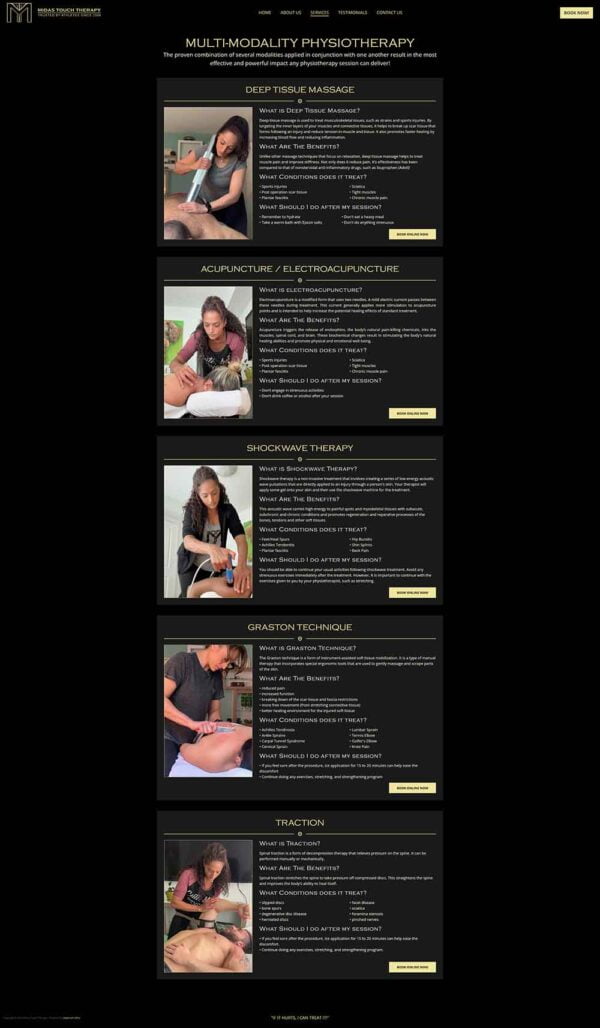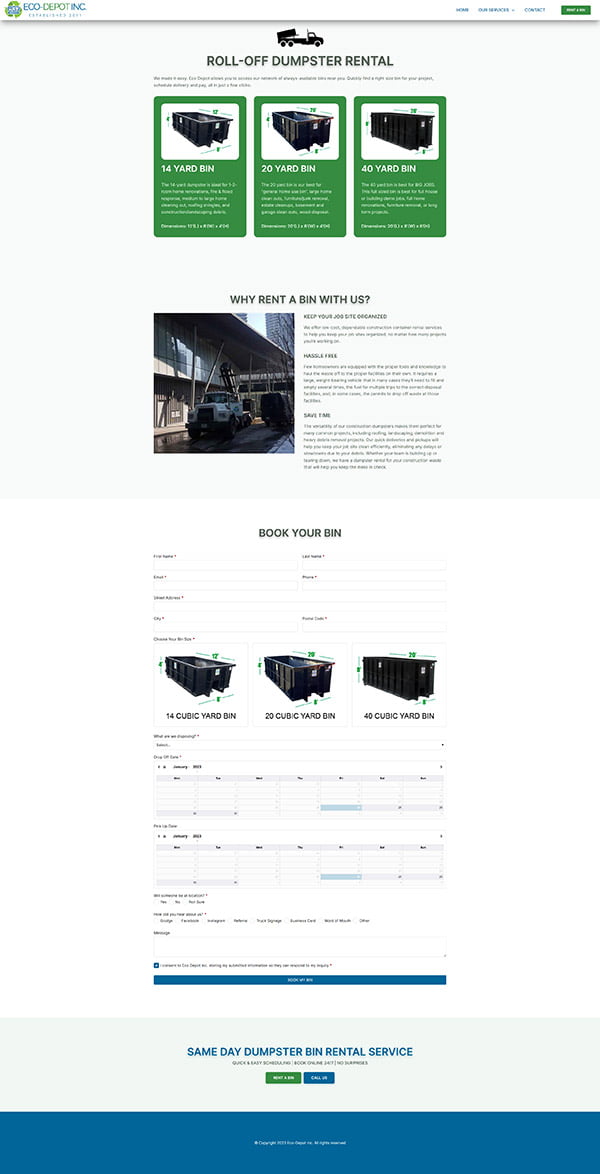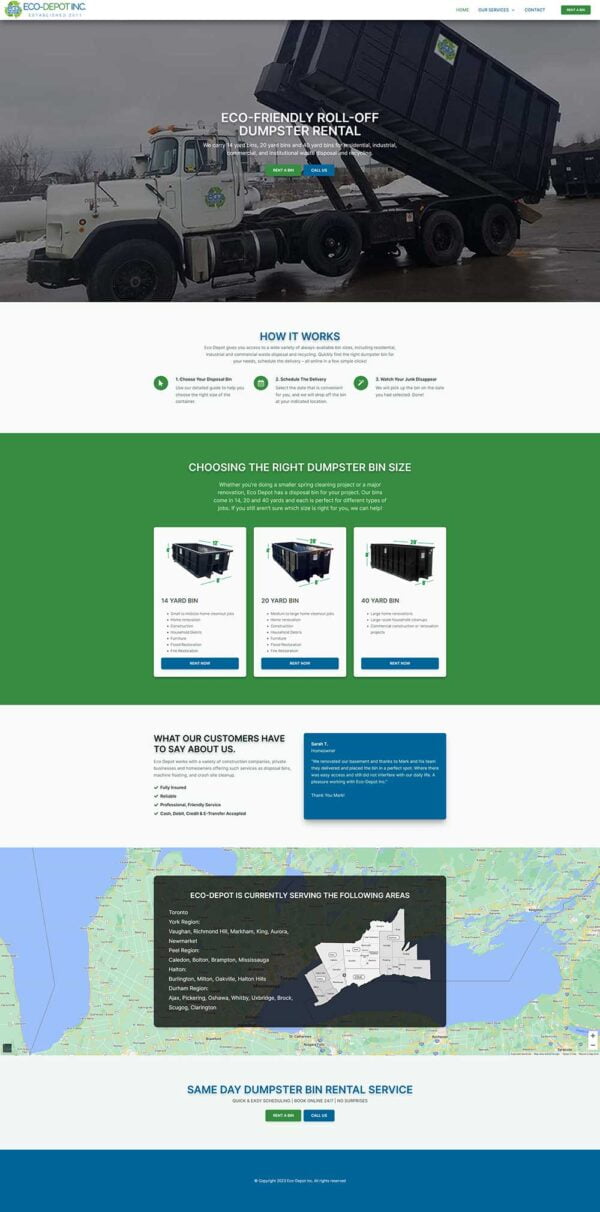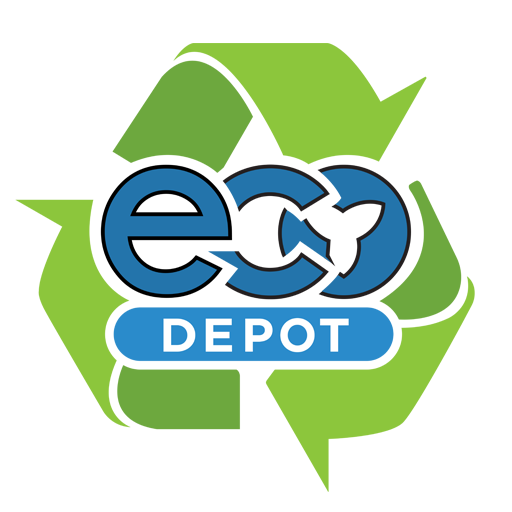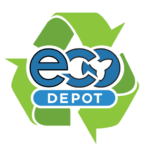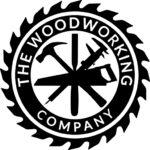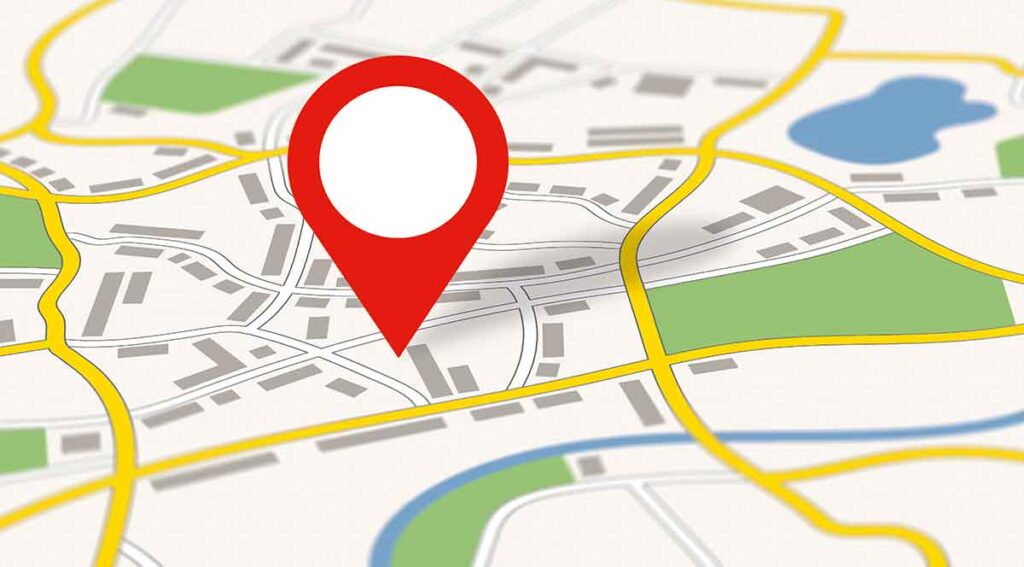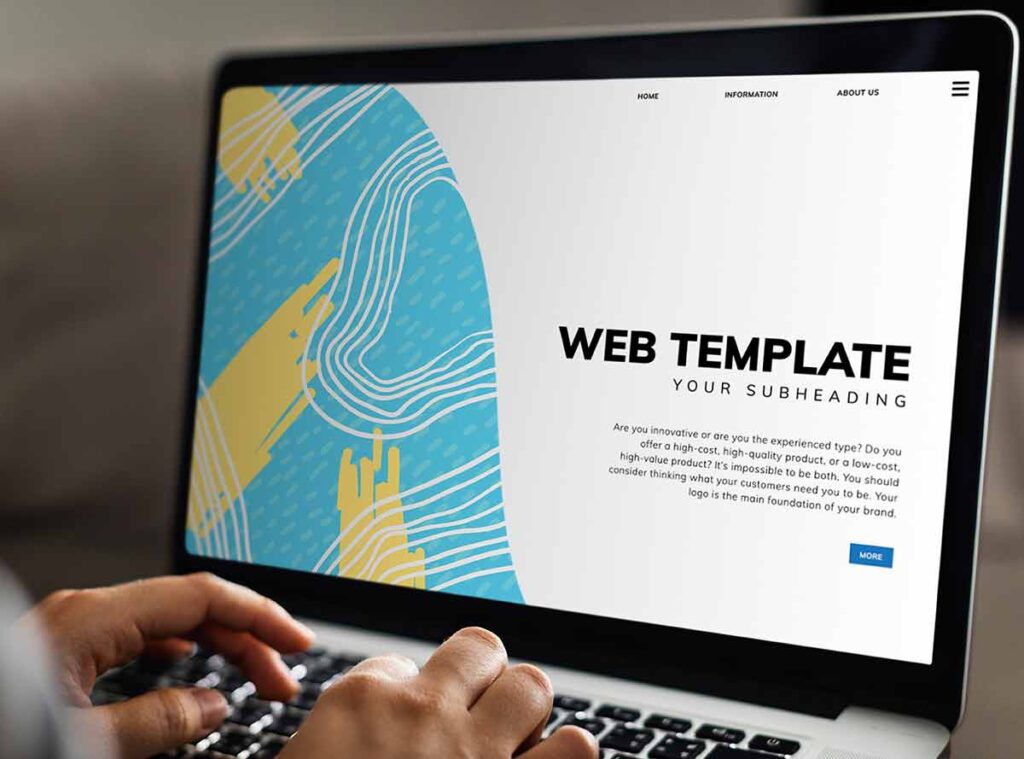Custom Web Design & Proven Digital Marketing For Small Businesses
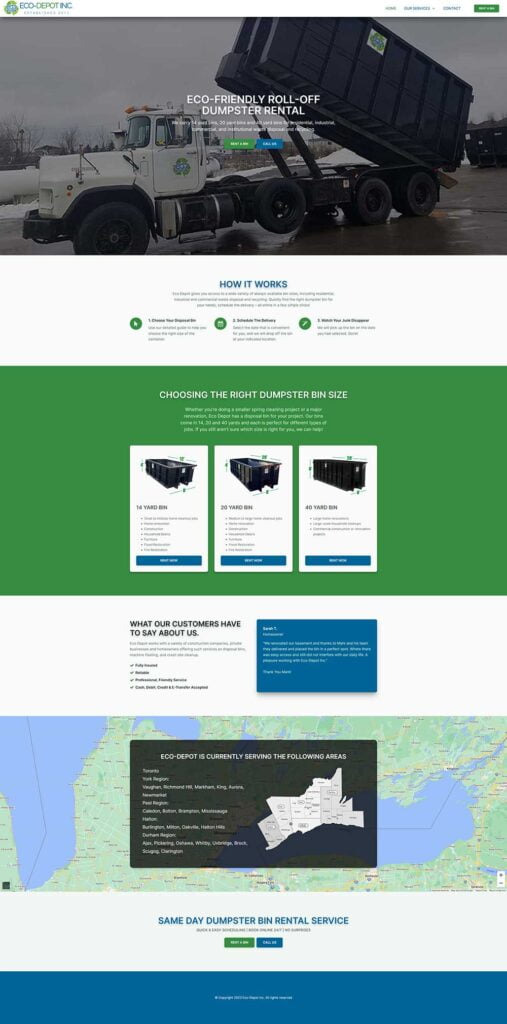
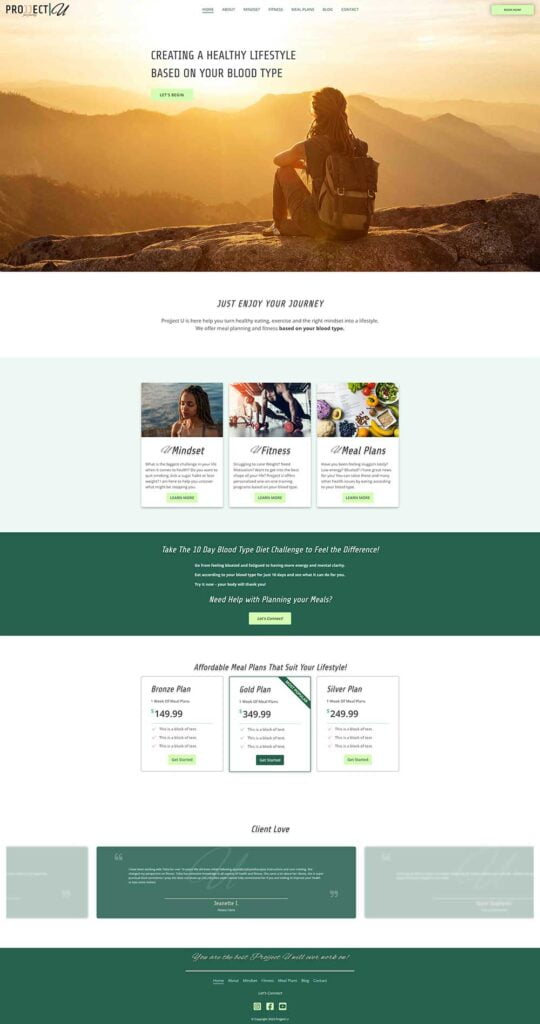


Welcome to Imperium Ultra
Let Us Help You Stand Out Online
Our Services
Creative Website Design and Strategic Digital Marketing Services
Web Design & Development
- UI Design
- UX Design
- Website Accessibility
- Responsive Web Design
- WordPress Development
Digital Marketing & Advertising
- Pay-Per-Click (PPC)
- Search Engine Optimization (SEO)
- Google Ads
- Google My Business
- Facebook Ads
- Instagram Ads
- Content Marketing
- Digital Strategy
- Social Media Marketing
- Email Marketing
Mobile & Web Applications
- iOS Apps
- Android Apps
- Custom Web Apps
Branding & Graphic Design
- Logo Design
- Business Card Design
- Brand Identity
- Advertising Design
Analytics & Reporting
- Data Collection
- Data Analysis
- Data Visualization
- Custom Reporting
- Data Management
Hosting & Management
- WordPress Hosting
- Website Hosting
- Website Maintenance
- Website Management
Recent Projects
Creating Immersive User Experiences for Businesses of All Industries
Client Reviews
Hear From Businesses Just Like Yours
Our Process
From Initial Consultation To Success
Initial Consultation
During this consultation, you'll meet with one of our experts to discuss your needs, goals, and expectations for your web design and digital marketing project. This meeting can be held in person, over the phone, or via video conference, depending on your preference.
Proposal and Agreement
After the initial consultation, Imperium Ultra will provide you with a detailed proposal and agreement outlining the scope of the project, timeline, budget, and payment terms. This proposal will be tailored to your specific needs and goals to ensure that we're on the same page and that you're comfortable moving forward.
Discovery Phase
During this phase, our team will conduct extensive research to gain a deeper understanding of your business, industry, target audience, and competitors. This research will inform the design and marketing strategies we'll use to achieve your goals.
Design and Development
Based on the insights gained during the discovery phase, our team will begin designing and developing your website. We'll provide you with regular updates throughout the design and development process to ensure that the final product meets your expectations.
Quality Assurance
After the website design and development are complete, we'll conduct a comprehensive quality assurance check to ensure that everything is functioning properly and meets our high standards of quality. We'll also provide you with a chance to review and approve the final product.
Launch
Once the quality assurance process is complete and you've approved the final product, we'll launch your website. We'll also implement any necessary digital marketing strategies, such as search engine optimization (SEO) or pay-per-click (PPC) advertising, to help you reach your target audience.
Training and Support
After the launch, we'll provide you with training and support to help you manage and maintain your website. This includes providing you with the tools and knowledge necessary to update content, manage website features, and track website performance.
Ongoing Optimization
Finally, we'll continue to work with you to optimize your website and digital marketing strategies over time. This includes conducting regular performance audits and making any necessary updates to help you achieve your business goals.
The most important elements of a website for small businesses are:
- A clear and attractive design that represents the business’s brand and values
- Easy navigation that makes it simple for users to find what they’re looking for
- Contact information, including a phone number and email address, so potential customers can get in touch
- A clear call-to-action (such as “Call Now” or “Make a reservation”) that encourages visitors to take the next step
- Information about the products or services the business offers
- Testimonials or reviews from satisfied customers
- A blog or news section that provides valuable information and helps to establish the business as an authority in its field.
- SEO optimization for better visibility in search engine results
- Responsive design for mobile device compatibility
- Secure and reliable hosting to ensure the website is always available to visitors.
Some effective digital marketing strategies for small businesses include:
- Search engine optimization (SEO): Optimizing your website and its content to rank higher in search engine results for relevant keywords.
- Content marketing: Creating and sharing valuable, informative, and engaging content to attract and retain customers.
- Social media marketing: Building a presence on social media platforms and using them to engage with customers, promote products and services, and drive traffic to your website.
- Email marketing: Building an email list and sending regular newsletters or promotional emails to subscribers.
- Pay-per-click (PPC) advertising: Using platforms like Google Ads or Facebook Ads to create and run online ad campaigns targeting specific audiences.
- Influencer marketing: Partnering with social media influencers to promote your products or services to their followers.
- Affiliate marketing: Partnering with other businesses or websites to promote your products or services in exchange for a commission.
- Referral marketing: Encouraging existing customers to refer new customers to your business.
- Video marketing: Creating and sharing videos on platforms like YouTube or Vimeo to promote your products or services and build your brand.
- Mobile marketing: Creating mobile-optimized content and advertising to reach customers on their smartphones and tablets.
It’s important to keep in mind that no single strategy will be effective for every business and it’s important to find a combination of strategies that work well for your specific audience and business.
There are several ways you can use social media to promote your small business, including:
- Building a strong presence: Set up accounts on the major social media platforms (such as Facebook, Instagram, Twitter, LinkedIn, and YouTube) and create a consistent brand image across all of them.
- Creating valuable content: Share engaging and informative content that provides value to your target audience. This can include blog posts, infographics, videos, and images.
- Engaging with your audience: Respond to comments and messages, and use social listening tools to monitor mentions of your brand and engage with customers.
- Running promotions and contests: Use social media to run promotions and contests that encourage engagement and help to grow your following.
- Collaborating with influencers: Partner with social media influencers to promote your products or services to their followers.
- Leveraging social media advertising: Use social media advertising to reach a larger audience, target specific demographics, and drive traffic to your website.
- Measuring and analyzing: Use analytics tools to track your social media performance and adjust your strategy as needed.
- Be consistent and regular: Keep a consistent posting schedule, and be consistent in your branding and messaging.
It’s important to note that the success of your social media strategy will depend on the nature of your business, your target audience and your goals. Also, it’s important to be authentic, use different types of content and not to focus on just one social media platform.
You can use analytics to improve your website and digital marketing efforts by:
- Tracking website traffic: Use tools like Google Analytics to track the number of visitors to your website, where they come from, and how they engage with your content. This information can help you identify which marketing efforts are most effective, and which pages of your website are most popular.
- Measuring conversion rates: Track the number of website visitors who take a specific action, such as making a purchase or filling out a contact form. This can help you identify which pages of your website are most effective at converting visitors into customers.
- Analyzing user behavior: Use tools like heat maps and session recordings to see how users interact with your website, and identify areas of improvement.
- Identifying referral sources: Use analytics tools to track the referral sources that bring visitors to your website, such as search engines, social media, or other websites. This can help you identify which marketing efforts are most effective at driving traffic to your website.
- Measuring social media performance: Use analytics tools to track the engagement and reach of your social media posts, and identify which types of content perform best.
- Analyzing email marketing: Track the open and click-through rates of your emails, and use this information to improve your email marketing campaigns.
- Identifying key performance indicators: Define key performance indicators (KPIs) that are important to your business, such as website traffic, conversion rates, or social media engagement, and use analytics to track these metrics over time.
- Testing and experimenting: Use A/B testing and experimentation to try different variations of your website, email campaigns, and other marketing efforts, and use analytics to see which variations perform best.
It’s important to note that, having all this information is only useful if you act on it. Use the insights gained from your analytics to make data-driven decisions that will improve your website and digital marketing efforts over time.
You can use email marketing to reach your target audience by:
- Building a targeted email list: Use opt-in forms on your website, social media, or in-person events to collect email addresses from people who are interested in your products or services.
- Segmenting your email list: Use the information you have about your subscribers (e.g. their interests, purchase history, location) to segment your email list and send targeted messages to different groups of people.
- Creating valuable content: Use your email campaigns to provide value to your subscribers, such as by sharing informative blog posts, industry news, or exclusive promotions.
- Personalizing your emails: Use personalization tokens to address your recipients by name and create a more personalized experience.
- Measuring and analyzing your results: Use analytics tools to track the open and click-through rates of your emails, and use this information to improve your email marketing campaigns over time.
- Making use of automation: Use email marketing automation tools to send targeted, timed messages to your subscribers, such as welcome messages, abandoned cart emails or birthday emails.
- Optimizing for mobile devices: Make sure your email campaigns are optimized for mobile devices, since a lot of people access their email on their smartphones and tablets.
- Testing and experimenting: Use A/B testing to try different subject lines, headlines, and calls-to-action, and use analytics to see which variations perform best.
It’s important to note that email marketing is a permission-based marketing, which means that you can only reach people who have given you permission to contact them. So, make sure that you provide an easy way for people to unsubscribe, and keep your email list clean by removing bounced or inactive email addresses.
There are several effective ways to increase website traffic, including:
- Search engine optimization (SEO): Optimize your website for search engines by including relevant keywords in your content, meta tags, and URLs, and by building high-quality backlinks to your site.
- Content marketing: Create valuable and informative content that attracts and engages your target audience. This can include blog posts, videos, infographics, and more.
- Social media marketing: Use social media platforms to promote your website and drive traffic to it. Share links to your content, participate in online communities, and run social media campaigns.
- Paid advertising: Use paid advertising methods like Google Ads or Facebook Ads to drive traffic to your website.
- Influencer marketing: Partner with influencers in your industry to promote your website and reach a new audience.
- Email marketing: Use email marketing campaigns to promote your website and drive traffic to it.
- Guest blogging: Reach out to other websites in your industry and offer to write guest blog posts. This will help you to gain exposure and backlinks to your website.
- Forum and community engagement: Engage with your target audience in forums, social media groups, and other online communities to build brand awareness and drive traffic to your website.
- Link building: Building links to your website is another good way to increase website traffic. Reach out to other websites and ask if they would be willing to link to your site.
- Optimize for voice search: With an increasing number of people using voice assistants like Alexa and Google Home, optimizing your website for voice search can help to increase website traffic.
Keep in mind that increasing website traffic is not a one-time effort, it’s a continuous process and you should always be testing and experimenting with different strategies to see which ones work best for you and your business.
You can use video marketing to promote your small business by:
- Creating engaging video content: Develop video content that is interesting, informative and engaging for your target audience. You could create product demos, explainer videos, customer testimonials, live streams, behind the scenes footage and more.
- Optimizing for search: Optimize your videos for search engines by including relevant keywords in the title, description, and tags.
- Utilizing social media: Share your videos on social media platforms like YouTube, Facebook, Instagram, TikTok, and Twitter to reach a wider audience.
- Incorporating video into your website: Embed videos on your website to improve user engagement and increase the time spent on your site.
- Creating a video series: Create a series of videos that can be released on a regular basis to keep your audience engaged and coming back for more.
- Using video in email marketing: Insert video links in your email marketing campaigns to increase click-through rates and conversions.
- Leveraging influencer marketing: Collaborate with influencers in your industry to create videos that promote your business and reach a new audience.
- Using video ads: Use video ads on platforms such as YouTube and Facebook to promote your business and drive traffic to your website.
- Measuring and analyzing your results: Use analytics tools to track the views, engagement and conversion rates of your videos and use this information to improve your video marketing efforts.
Video marketing can be an effective way to promote your small business as it allows you to showcase your products and services in an engaging and interactive way. It also has the potential to reach a wider audience and increase brand awareness. Make sure to measure the performance of your video marketing efforts, and use the data to optimize your strategies accordingly.
Small businesses can make several mistakes when it comes to their websites, including:
- Poor website design: A poorly designed website can be off-putting to potential customers and can make it difficult for them to navigate or find the information they need.
- Lack of mobile responsiveness: With the majority of internet users accessing the web on mobile devices, it is important for a website to be mobile-friendly. A website that is not optimized for mobile can lead to a poor user experience, resulting in a high bounce rate.
- Slow load times: A website that takes a long time to load can lead to frustration and cause visitors to leave before the page has loaded.
- Outdated content: Websites that have not been updated in a while can give the impression that a business is not active or engaged.
- Lack of clear calls to action: Not having clear calls to action on a website can make it difficult for visitors to understand what the next step is or how to contact the business.
- Not having a clear value proposition: A website that does not clearly communicate the value that a business can offer to its customers can be confusing and ineffective.
- Not having clear messaging: A website that doesn’t have a clear message or branding can make it difficult for visitors to understand what the business is about.
- Not having a blog: A blog is a great way to keep your website updated and to communicate with your customers.
- Not having analytics tracking: Not having analytics tracking can make it difficult to understand how visitors are interacting with your website and to make data-driven decisions about how to improve it.
- Not having proper security: Not having proper security measures in place can put a website at risk for hacking and data breaches which can damage the reputation and trust of your business.
Avoiding these common mistakes can help small businesses to create a website that is attractive, easy to use, and effective at generating leads and driving sales. It’s important to regularly review and update your website to ensure it is meeting the needs of your business and your customers.
Influencer marketing can be an effective way for small businesses to promote their products or services by leveraging the reach and credibility of social media influencers. Here are some ways you can use influencer marketing to promote your small business:
- Identify the right influencers: Research and identify influencers who align with your brand and have a following that includes your target audience.
- Develop a clear campaign plan: Clearly define the goals and objectives of your influencer marketing campaign, including the key message and call to action.
- Build relationships: Reach out to influencers and build a relationship with them by commenting on their posts, responding to their stories, and direct messaging them.
- Create sponsored content: Work with influencers to create sponsored content such as sponsored posts, Instagram stories, and YouTube videos that feature your products or services.
- Track and measure results: Use analytics tools to track the engagement and conversions from your influencer marketing campaigns, and use this data to optimize your strategies.
- Offer incentives: Offer incentives to influencers for promoting your brand, such as discounts, free products, or exclusive access to new products or services.
- Collaborate on creative campaigns: Collaborate with influencers to create creative campaigns that align with your brand and resonate with your target audience.
- Create long-term partnerships: Consider building long-term partnerships with influencers to establish a consistent brand presence on their channels.
- Use micro-influencers: Micro-influencers, who have a smaller but more engaged following, can be a cost-effective and highly targeted way to promote your business.
- Be authentic: Influencer marketing works best when it is authentic and not forced, so be sure to choose influencers who align with your values and mission.
By working with social media influencers, small businesses can reach a wider audience and increase brand awareness in a cost-effective way. It’s important to track and measure the results of your influencer marketing campaigns to ensure they are meeting your business objectives and to make data-driven decisions about how to optimize them.
Local SEO is the process of optimizing your website and online presence to rank higher in search engine results for keywords related to your business and location. Here are some ways you can use local SEO to reach your target audience in your area:
- Optimize your Google My Business listing: Make sure your business is listed on Google My Business and that your listing is complete and accurate, including your business name, address, phone number, hours of operation, and photos.
- Optimize your website for local keywords: Include keywords relevant to your business and location in your website’s title tags, meta descriptions, and content.
- Get listed in local directories: Get your business listed in online directories such as Yelp, Yellow Pages, and the Better Business Bureau.
- Get reviews: Encourage customers to leave reviews on your Google My Business listing, Yelp, and other review sites.
- Optimize your website’s structure: Use schema markup to help search engines understand the structure of your website and the relationship between your pages.
- Use location-based keywords: Use location-based keywords in your website’s content and meta tags, such as the name of your city or neighborhood.
- Optimize for mobile: Make sure your website is mobile-friendly, since many local searches are done on mobile devices.
- Use Google Maps: Optimize your Google Maps listing by including photos, videos, and keywords to help customers find your business.
- Get backlinks from local websites: Get links from local websites such as chambers of commerce, city guides, or local news sites.
- Optimize for voice search: Optimize your website for voice search by including long-tail keywords and answering frequently asked questions.
By optimizing your website and online presence for local keywords, you can increase the visibility of your business in search engine results for customers searching for businesses in your area. It’s important to regularly track your website’s performance and make changes to your local SEO strategy as needed to ensure it is meeting your business objectives.
Latest Articles
Expand your knowledge and learn something new today.
Get the latest updates and insights in the field with our collection of related articles.
The Hidden Costs of Neglecting Website Maintenance
Maintaining a website is crucial for businesses in today's digital age. It is the face of your company online and the first point of contact for potential customers. Neglecting website maintenance can have hidden costs that can impact your business's…
The Benefits of Setting Up Your Google My Business Listing
As a small business owner, you know the importance of attracting new customers and promoting your business. However, with so many competitors and limited resources, it can be challenging to stand out and reach your target audience. This is where…
Template vs. Custom: 8 Reasons Why Your Small Business Needs
Having a professional online presence is crucial for the success of any small business. A custom website design can provide a number of benefits over using a template or generic website builder. Here are 8 reasons why your small business…

